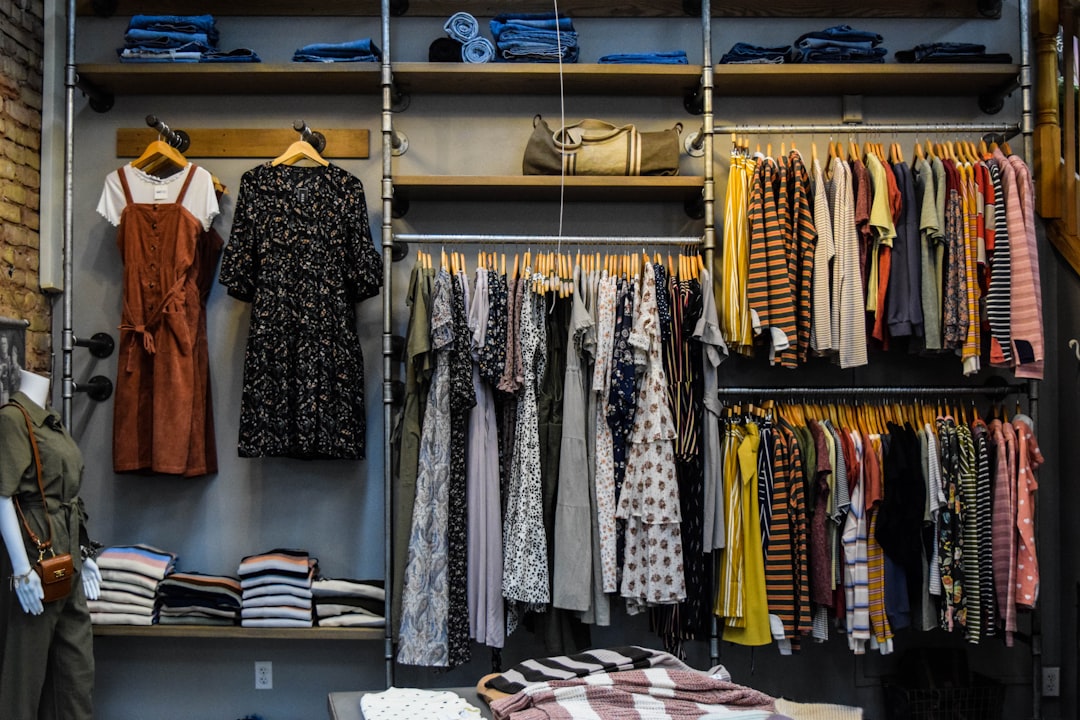Artificial Intelligence (AI) has revolutionized various industries, and the retail industry is no exception. The retail industry has experienced significant changes over the years, and AI-powered personal shopping assistants are one of the latest innovations that are transforming the shopping experience. These assistants are designed to make shopping more convenient, personalized, and efficient. In this blog post, we will explore what AI-powered personal shopping assistants are, how they work, their benefits, popular examples, concerns and criticisms surrounding them, and the future of this technology. So, let’s dive in and learn more about AI-powered personal shopping assistants.
What are AI-powered personal shopping assistants?
AI-powered personal shopping assistants are virtual assistants that use artificial intelligence technology to help customers with their shopping needs. They are designed to provide personalized recommendations and assist customers in making informed purchasing decisions. These assistants can be accessed through various devices such as smartphones, tablets or smart speakers and provide a unique shopping experience to customers.
The use of AI-powered personal shopping assistants is becoming increasingly popular as customers are looking for more personalized and convenient shopping experiences. These assistants use advanced algorithms that analyze customer data such as purchase history, search history, and preferences to offer highly personalized recommendations.
AI-powered personal shopping assistants are not just limited to recommending products but can also provide real-time assistance to customers. They can help customers with product comparisons, provide information on product availability, and even help customers track their orders.
These assistants are designed to mimic human interaction, making the shopping experience more enjoyable and effortless. They can understand natural language, which means customers can communicate with them in their own words, making the experience more personalized and natural.
In summary, AI-powered personal shopping assistants are virtual assistants that use artificial intelligence technology to provide personalized recommendations and assist customers in making informed purchasing decisions. They are becoming increasingly popular due to their ability to provide a unique and convenient shopping experience.
AI-powered personal shopping assistants are not just limited to recommending products but can also provide real-time assistance to customers.
How do AI-powered personal shopping assistants work?
When it comes to AI-powered personal shopping assistants, the technology behind them is quite complex. These assistants use a combination of machine learning algorithms and natural language processing to understand and interpret user requests.
First, the personal shopping assistant needs to be trained on a large dataset of products and their attributes. This dataset includes information such as product descriptions, images, and customer reviews. The more data the assistant is trained on, the more accurate its recommendations will be.
Once the assistant is trained, it can begin to understand user requests. This is done through natural language processing, which allows the assistant to interpret user requests and understand the context behind them. For example, if a user asks for “black dress shoes for a wedding,” the assistant can use its understanding of natural language to recommend appropriate options.
After understanding the user’s request, the assistant uses its machine learning algorithms to match the request with relevant products in its dataset. The algorithms take into account factors such as the user’s preferences, budget, and past purchase history to provide personalized recommendations.
In some cases, the assistant may also use image recognition technology to further refine its recommendations. For example, if a user uploads a picture of a dress they like, the assistant can use image recognition to find similar styles.
Overall, AI-powered personal shopping assistants work by using a combination of machine learning and natural language processing to understand user requests and provide personalized recommendations. The technology behind these assistants is constantly evolving, and we can expect to see even more advanced features in the future.
Once the assistant is trained, it can begin to understand user requests.
Benefits of using AI-powered personal shopping assistants
When it comes to shopping, there are few things more frustrating than not being able to find what you are looking for. This is where AI-powered personal shopping assistants come in. These innovative tools are designed to help you find the products you need quickly and easily, without the hassle of browsing through countless online stores.
One of the biggest benefits of using an AI-powered personal shopping assistant is that it can save you time. These tools are designed to help you find what you are looking for quickly and efficiently, so you can spend more time doing the things you love. Whether you are looking for a new outfit, a gift for a friend, or just some inspiration, an AI-powered personal shopping assistant can help.
Another benefit of using an AI-powered personal shopping assistant is that it can help you save money. These tools are designed to help you find the best deals and discounts, so you can get the products you need at a price that works for you. Whether you are shopping for groceries, clothes, or electronics, an AI-powered personal shopping assistant can help you find the best deals and save money.
AI-powered personal shopping assistants can also help you make better purchasing decisions. These tools are designed to provide you with personalized recommendations based on your preferences and past purchases, so you can be sure that you are getting the products that you will love. This can help you avoid buyer’s remorse and ensure that you are getting the most value for your money.
Finally, AI-powered personal shopping assistants can help you stay organized. These tools can help you keep track of your purchases, create shopping lists, and even set reminders for upcoming sales and promotions. This can help you stay on top of your shopping and ensure that you never miss out on a great deal.
Overall, AI-powered personal shopping assistants offer a range of benefits that can help you save time, save money, make better purchasing decisions, and stay organized. Whether you are a busy professional, a parent on the go, or just someone who loves to shop, an AI-powered personal shopping assistant can be a valuable tool to have in your arsenal.
Finally, AI-powered personal shopping assistants can help you stay organized.
Examples of Popular AI-Powered Personal Shopping Assistants
As AI technology continues to advance, there are now several popular AI-powered personal shopping assistants available to consumers. These assistants are designed to help shoppers find the products they are looking for and provide personalized recommendations based on their preferences and past purchases.
One popular AI-powered personal shopping assistant is Amazon’s Alexa. With Alexa, shoppers can use voice commands to search for products, add items to their cart, and even place orders. Alexa can also make personalized product recommendations based on a shopper’s past purchases and search history.
Another popular personal shopping assistant is Google Assistant. Google Assistant is integrated with several major retailers, including Walmart and Target, allowing shoppers to easily search for products and make purchases through the Assistant. Google Assistant also provides personalized recommendations based on a shopper’s search history and preferences.
In addition to these major players, there are also several smaller AI-powered personal shopping assistants available on the market. One such assistant is H&M’s chatbot, which helps shoppers find the perfect outfit based on their style preferences and budget. Another is Stitch Fix, which uses AI algorithms to curate personalized clothing recommendations for each individual customer.
Overall, AI-powered personal shopping assistants are becoming increasingly popular among consumers who are looking for a more personalized and streamlined shopping experience. While there are concerns surrounding the use of AI in shopping, these assistants offer many benefits and are likely to continue to grow in popularity in the coming years.
In addition to these major players, there are also several smaller AI-powered personal shopping assistants available on the market.
Concerns and Criticisms Surrounding AI-Powered Personal Shopping Assistants
As with any emerging technology, AI-powered personal shopping assistants are not without their fair share of concerns and criticisms. One of the primary concerns is the potential for these assistants to perpetuate bias and discrimination. AI algorithms are only as unbiased as the data they are trained on, and if that data is biased, then the AI will perpetuate that bias. For example, if an AI-powered personal shopping assistant is only trained on data from a particular demographic, it may not be able to make accurate recommendations for people outside of that demographic.
Another concern is the potential for these assistants to invade users’ privacy. AI-powered personal shopping assistants require access to a user’s personal information and shopping history in order to make personalized recommendations. However, this information can be sensitive and private, and users may not want it to be shared with a third-party service.
Additionally, there is a concern about the potential for these assistants to replace human workers in the retail industry. As AI-powered personal shopping assistants become more sophisticated, they may be able to handle more complex tasks traditionally performed by human workers. This could lead to job losses and a shift in the job market.
Finally, there is a concern about the accuracy and reliability of AI-powered personal shopping assistants. While these assistants are designed to make personalized recommendations based on a user’s preferences, there is always the potential for errors or inaccuracies. If a user relies too heavily on these recommendations, they may end up making a purchase that they later regret.
Overall, while AI-powered personal shopping assistants have the potential to revolutionize the way we shop, it is important to consider the potential concerns and criticisms surrounding this technology. By addressing these concerns and finding ways to mitigate them, we can ensure that AI-powered personal shopping assistants are used in a responsible and ethical manner.
Finally, there is a concern about the accuracy and reliability of AI-powered personal shopping assistants.
Conclusion – The Future of AI-Powered Personal Shopping Assistants
After exploring the world of AI-powered personal shopping assistants, it is clear that this technology is here to stay. As we continue to rely more heavily on technology in all aspects of our lives, it only makes sense that we would turn to AI to help us with our shopping needs.
The benefits of using AI-powered personal shopping assistants are numerous, from saving time and money to providing personalized recommendations and improving the overall shopping experience. And with the increasing popularity of these tools, we can expect to see even more advancements and improvements in the future.
Of course, there are also concerns and criticisms surrounding AI-powered personal shopping assistants, such as privacy and security issues, as well as the potential for bias in the recommendations they provide. As with any new technology, it is important to approach these tools with a critical eye and to be aware of their limitations.
Overall, however, the future of AI-powered personal shopping assistants looks bright. As the technology continues to evolve and improve, we can expect to see even more sophisticated tools that are better able to understand our individual preferences and provide even more personalized recommendations. And with the convenience and time-saving benefits they offer, it’s easy to see why more and more people are turning to AI-powered personal shopping assistants to help them navigate the world of retail.





